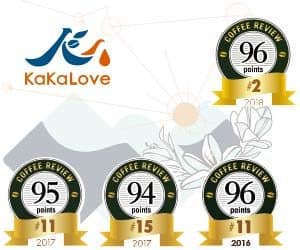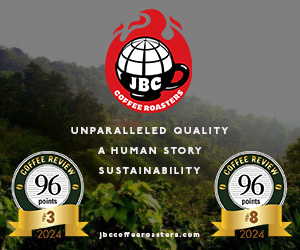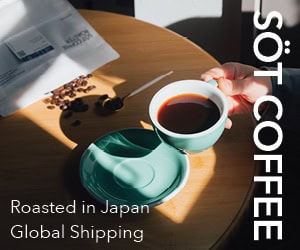This coffee is made up entirely of the respected Yellow Catuai variety of Arabica. Las Chicas del Cafe is a Canadian-based roaster specializing in coffee from their family owned farm AromaNica Coffees in Nicaragua. Visit www.laschicasdelcafe.com or call 519-652-3642 for more information.
SEARCH RESULTS
Honduras Finca El Gringacho Yellow Catuai
This lot was produced from trees of the respected Yellow Catuai variety of Arabica, locally known as “Nanze.” A Nanze microlot placed first in the 2011 Santa Barbara Regional Green Coffee Competition. OQ Coffee Co. is a specialty coffee roastery in New Brunswick, New Jersey with a passion for building community through coffee both globally and locally. Visit www.oqcoffee.com or call 732-455-2233
Guatemala El Injerto
El Injerto is one of Guatemala’s most celebrated and consistently award-winning farms. This lot was produced from trees of the classic Bourbon and respected Catuai varieties. Kuma Coffee is a small Seattle, Washington based roaster that believes that coffee fosters relationships. Visit www.kumacoffee.com or call 206-384-6092 for more information.
Panama Elida Estate Natural Process
This is a dry-processed or "natural" coffee, meaning the beans were dried inside the fruit rather than after the fruit has been removed, as is the case with the wet-processed or "washed" coffees more typical of Panama. From trees of the Typica and Catuai varieties of Arabica. Elida Estate has been owned by the Lamastus family since 1918. Kuma Coffee is a small Seattle, Washington based roaster
Nicaragua Santa Teresa
This offering from Santa Teresa, Luis Joaquin Lovo's farm, consists of Caturra and Yellow Catuai varieties of Arabica. An integral part of New York’s coffee renaissance, Brooklyn based Café Grumpy opened its first café in 2005 and has since expanded to four locations, including their own roasting facility. Visit www.cafegrumpy.com or call 718-349-7623 for more information.
Costa Rica Micro Lot “Pepe” Honey Processed
This lot was produced from trees of the respected Yellow Catuai variety of Arabica and grown in the Naranjo region in Costa Rica’s central valley. It is Rainforest Alliance certified, meaning it was produced following sustainable ecological and socio-economic criteria developed by the Sustainable Agricultural Network, a coalition of independent, environment-focused non-governmental organizations.
Guatemala El Injerto
El Injerto is one of Guatemala’s most celebrated and consistently award-winning farms. This lot was produced from trees of the classic Bourbon and respected Catuai varieties. Coffea Roasterie is a South Dakota-based wholesale and retail roaster, offering a small but refined selection of mostly single-origin coffees. Visit www.coffearoasterie.com or call 605-362-9955 for more information.
Brazil Alta Mogiana Peaberry
This lot was produced from trees of the red and yellow Catuai varieties of Arabica, and processed by the traditional Brazilian natural or dry method, meaning the beans were dried with both skin and fruit still adhering to the bean. This sample consists entirely of peaberries, a kind of bean that results when the coffee fruit develops only a single, oval bean rather than the usual pair of
Panama Elida Estate Natural
This coffee was dried in the fruit, an unusual procedure for a Panama coffee. From trees of the Typica and Catuai varieties of Arabica. Roasted at PT’s Coffee, where the motto is “without the love, it’s just coffee.” Visit www.ptscoffee.com or call 888-678-5282 for more information.
Costa Rica Helsar ed Zercero Organic
Produced from trees of the Caturra and Catuai varieties on award-winning Finca Santa Lucia by farmer Ricardo Perez Barrantes. Most likely a touch of fruit pulp was allowed to dry on the beans, accounting for a delicately clean fruit and wine-like cup character. Formerly Coffee Klatch, Klatch Coffee is an award-winning small-batch roasting company based in the Los Angeles area whose resident
Understanding the Geisha Cultivar
Like many people in coffee, the Geisha cultivar in Panama fascinates me. I’ve done as much research into its history, as well as other Ethiopian cultivars, as anyone. While I have a lot to say on it here I want to focus on some aspects of its history that were unknown to me until a few days ago and relate a period of its history I haven’t heard before. Most people who know of the Geisha know of
Finca El Puente Marcala Honduras
Planted with the Catuai variety of Arabica, Finca El Puente has fared well in many coffee quality competitions over the years, including past Honduras Cup of Excellence competitions. Counter Culture Coffee is a small-batch wholesale specialty roaster with an informative and lively website, a commitment to exceptional coffee and youthful, enthusiastic leadership. Visit www.counterculturecoffee.com
Brazil Fazenda Sao Joao Espresso
Processed by the traditional Brazilian natural or dry method, meaning the beans were dried with both skin and fruit still adhering to the bean. A semi-arid climate prevailing during harvest apparently permits farmer Reginaldo Silvoni to achieve a purity of profile, free of fermented sugars or mildew, despite the relatively lengthy drying period occasioned by drying coffee inside the tough fruit
“S” as in Sexy: New Specialty Offerings from Brazil
The fact that at least half of the American roasters submitting coffees for this month's cupping spelled Brazil with an "s" - the Portuguese-Brazilian spelling - may be symptomatic of what has happened of late to the reputation of high-end coffees from that country. The spelling implies that these are not your old-fashioned, low-grown, stolid Brazils of years past, but Brasils with an "s" -
Fazenda Sao Joao Brasil
Processed by the traditional Brazilian natural or dry method, meaning the beans were dried with both skin and fruit still adhering to the bean. A semi-arid climate prevailing during harvest apparently permits farmer Reginaldo Silvoni to achieve a purity of profile, free of fermented sugars or mildew, despite the relatively lengthy drying period occasioned by drying coffee inside the tough fruit
Brasil Cerrado Fazenda Sao Pedro Lot 307 Natural
Processed by the traditional Brazilian natural or dry method, meaning the coffee was dried with both skin and fruit still adhering to the beans. From the Cerrado growing region, a high plateau in south-central Brazil with a dry harvest season particularly suited to sun-drying natural and pulped-natural process coffees. Farmer Tulio Bovaretto produced this coffee from trees of the Catuai, icatus
Brazil Fazenda Boa Sorte Natural Catuai
A dry-processed or "natural" coffee, meaning the beans are dried inside the fruit rather than after the fruit has been removed, as is the case with wet-processed or "washed" coffees. Typically low growing altitudes and dry-processing contribute to a gentle, subdued acidy sensation in most Brazil coffees. Produced from trees of the catuai variety, a relatively recent selection of arabica that has
Nicaragua El Progresso COE Lot #1
A prize winner in the 2006 Nicaragua Cup of Excellence competition, where as a green (unroasted) coffee it placed first out of hundreds of entries, attracting a score of 91.6 from an international jury. Produced from trees of the Caturra and Catuai varieties at an elevation of approximately 5,000 feet by farmer Jos? Noel Talavera on his El Progresso farm. Torreo Coffee Roasters is a
Brazil Araucaria
Cup of Excellence winners are green coffees that have been awarded ratings of over 80 by juries of international cuppers and auctioned to roasters on the Internet. This coffee was awarded a rating of 86.11 by the jury at the 2003 Brazil Cup of Excellence competition. Produced in the traditional growing region of southern Minas Gerais from trees of the yellow catuai variety, a recent but respected
Brazil Vivenda das Aguas
Cup of Excellence winners are green coffees that have been awarded ratings of over 80 by juries of international cuppers and auctioned to roasters on the Internet. This coffee was awarded a rating of 86.43 by the jury at the 2003 Brazil Cup of Excellence competition. It comes from an old but relatively obscure Brazilian coffee growing region, Matas de Minas or "Mountains of Minas." Produced from












